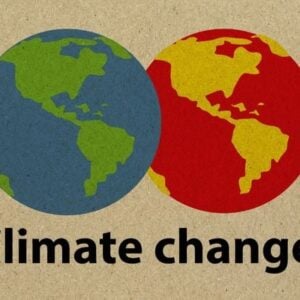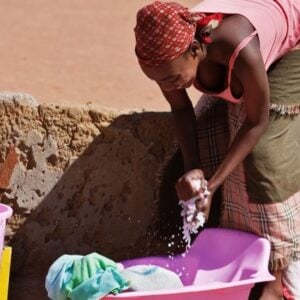ACT Alliance, as part of the Major Groups and Stakeholders – Africa, contributed actively to the Regional Consultative Meetings ahead of the 20th African Ministerial Conference on the Environment (AMCEN). Marking AMCEN’s 40th anniversary, these consultations, hosted by UNEP, aimed to inform African ministers on climate and environmental priorities. To prepare, ACT convened members from Uganda, Zimbabwe, Tanzania, Kenya, and Ethiopia to consolidate regional perspectives and ensure that the voices of local communities were represented in policy recommendations.
During the consultations, ACT members participated in the Climate Change thematic drafting group, stressing the importance of amplifying Africa’s agency in global climate negotiations, ensuring equitable access to climate finance, and rooting policies in justice and equity. Their contributions highlighted the need to align climate action with Africa’s specific realities while advancing fair and ambitious commitments.
A central theme was Africa’s climate vulnerability, as the continent continues to warm faster than the global average despite contributing only 4% of global emissions. This disparity reinforced calls for urgent, ambitious, and just climate action grounded in principles of equity, Common But Differentiated Responsibilities (CBDR), and climate justice under the UNFCCC and Paris Agreement.
ACT members put forward several propositions to strengthen Africa’s climate agenda. They advocated for investment in indigenous and community-led technologies, equitable partnerships, and funding to support adaptation rooted in traditional knowledge. Harnessing Africa’s youth demographic was highlighted as key to driving climate innovation and digital transformation. Members also called for an Africa-centred green transition focused on renewable energy, critical minerals, and local value addition to spur job creation and industrialisation.
Climate finance was another priority, with emphasis on making it fair, predictable, and accountable. Members proposed national tracking systems to monitor inflows and identify gaps to improve mobilisation efforts. They further called for the enactment of stand-alone climate change laws to institutionalise commitments and enhance accountability. The importance of faith groups and social movements in driving behavioural change and community mobilisation was also underlined, alongside a call for gender-responsive climate policies that build capacity, ensure accountability, and avoid the shortcomings of previous Gender Action Plans.
At AMCEN 20, the Africa Group of Negotiators (AGN) echoed many of these priorities, reaffirming the continent’s united voice on climate justice and equity. Their agenda focused on securing a New Collective Quantified Goal of USD 1.3 trillion annually by 2030, establishing a strong Global Goal on Adaptation framework with financing for underfunded National Adaptation Plans, and fully operationalising the Loss and Damage Fund to address Africa’s economic and social impacts. They stressed that a just transition must balance decarbonisation with justice, energy access, and job creation, highlighting African Union initiatives such as clean cooking solutions for 900 million Africans.
AGN also reiterated Africa’s special needs and circumstances, rooted in its low emissions and high vulnerability, while pushing for greater recognition under the Paris Agreement. They encouraged leveraging Africa’s natural resources and ecosystems as drivers of low-carbon development and resilience, supported by targeted research and innovation.
Together, these reflections and negotiations underscored Africa’s determination to assert its agency, secure equitable financing, and drive a green, just, and resilient future. They also highlighted the importance of unity in amplifying Africa’s voice and ensuring that global climate processes respond to the continent’s priorities.







